Righting Past Wrongs
Thousands of LGBTQ veterans are seeking to have their discharges upgraded.
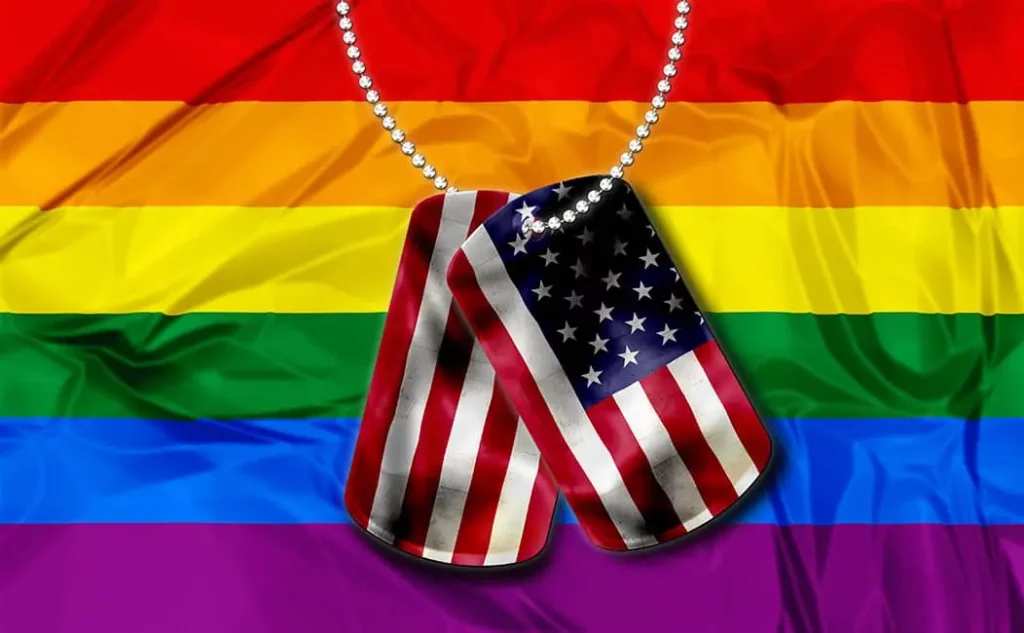
There has been an ongoing discussion here, going back to the early days of the site, about applying today’s morality in judging the behavior of those who lived in different times. Almost always, it’s about people whose actions and beliefs were consistent with the society of their day but are bigoted by today’s standards. But what about the opposite: those who transgressed the norms of their society in a way that most wouldn’t bat an eye at now?
A case in point:
CBS News (“LGBTQ+ veterans file civil rights suit against Pentagon over discriminatory discharges“):
A group of LGBTQ+ veterans who were kicked out of the military because of their sexual orientation filed a federal civil rights suit on Tuesday over the Defense Department’s failure to grant them honorable discharges or remove biased language specifying their sexuality from their service records following the repeal of “don’t ask, don’t tell” in 2010.
The class action lawsuit, which was filed in the U.S. District Court for the Northern District of California on behalf of five veterans, claims the Pentagon’s failure to correct this “ongoing discrimination” represents a violation of constitutional rights.
“Requiring LGBTQ+ veterans to first bear the stigma and discriminatory effects of carrying indicators of sexual orientation on their [discharge papers] and then navigate a broken record correction process to seek resolution violates their constitutional rights to equal protection, informational privacy, property, and due process protected by the Fourteenth and Fifth Amendments to the U.S. Constitution,” the suit says.
It’s been more than a decade since the military lifted its longstanding ban on gay and lesbian troops. But thousands of those discharged under past discriminatory policies like “don’t ask, don’t tell” are still carrying less than honorable discharges today, depriving them of the full spectrum of benefits including VA loan programs, college tuition assistance, health care and some jobs.
Over the past six months, a CBS News investigation documented the Pentagon’s long-running failure to restore honor to the service records of thousands of veterans who were deprived of veterans benefits after their military careers were cut short. The reports documented the way these veterans’ often traumatic separation from the military shaped the course of their lives.
A Pentagon spokesperson told CBS News the department does not comment on pending litigation, but in an earlier statement said that the military has an existing process consisting of a short two-page application for veterans seeking a change to their discharge. The department said “legal representation is not required to apply for a discharge review” and that the discharge review boards “continue to strive to finalize 90% of all cases within 10 months as required by statute.”
But the lawsuit, prepared by the Impact Fund, Legal Aid at Work and King and Spalding LLP, lays out what plaintiffs allege is a “constitutionally inadequate” response.
“The process places the burden on individual veterans to spend months or years obtaining old personnel records before they can even file the applications that will then take months or years to be processed, on top of the years since their discriminatory discharges,” the complaint alleges. “The application process is opaque; many veterans must hire lawyers to assist them. Individual veterans are forced to relive the trauma of their discharge, carrying the burden of proving discrimination to the very institution that discriminated against them.”
The lawsuit is not seeking monetary damages. Instead, it asks the Defense Department to systematically upgrade these veterans’ discharge papers, known as DD-214s, and remove all indicators of sexual orientation, instead of placing the burden on the veteran to apply themselves. A DD-214 is so important to a veteran’s post-military life that it comes with a warning: “This is an important record. Safeguard it.”
Veterans aren’t just asked for their DD-214 when accessing their VA benefits, but also when applying for a job, a loan or even an apartment.
“Every time they have to show that document they are essentially outed involuntarily,” said Jocelyn Larkin, one of the lawyers representing the plaintiffs.
“This case is not about damages,” Larkin said. “This case is about simply changing that piece of paper because the effect of changing that piece of paper is so incredibly consequential for our clients.”
[…]
The figures revealed at least 35,000 service members from 1980 to 2011 “received a discharge or separation because of real or perceived homosexuality, homosexual conduct, sexual perversion, or any other related reason.” The true figure could be significantly higher. According to the most recent data available from the Pentagon, just 1,375 veterans have been granted relief in the form of a discharge upgrade or correction to their record.
There’s simply no question that, at a minimum, the references to homosexuality and the like should be removed from the documents. (Obviously, if they were convicted of actual sex crimes, that should remain .) Beyond that, it’s slightly more complicated, although my instinct is to side with the plaintiffs here more broadly.
For one thing, 1980-1993 and 1994-2011 are two eras with distinct rules.
LGBTQ members joining before “Don’t Ask, Don’t Tell” went into effect on December 21, 1993 had to lie multiple times during the process to qualify for service and get even a basic security clearance. (Because I was technically commissioned into the Intelligence branch and thus required a Top Secret clearance, I was asked probably a dozen questions during my investigation circa 1987; it seemed comical even then.) So, they were actually committing crimes—albeit ones we now consider unjust.
DADT, ironically, was intended to allow LGB people to serve legally but actually made things worse. While no one was allowed to ask whether those seeking to enlist or obtain a commission were gay, those who did were required to be hyper-vigilant to remain closeted. Essentially, it created a situation where any intimation that someone was gay led to witch hunts to determine whether they could continue to serve.
Perhaps the simplest solution here is for President Biden to issue a blanket pardon for anyone discharged under less than honorable conditions for violating these obsolete policies.
This also opens broader public policy questions. Several of states have legalized marijuana and some other drugs that were once illegal. Should those who were convicted of violating those laws have their records expunged?


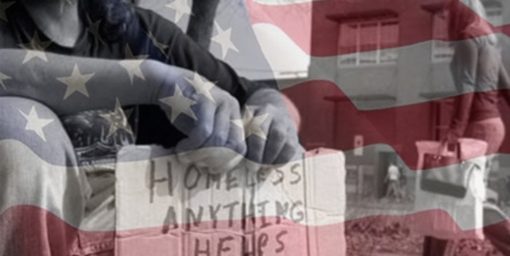
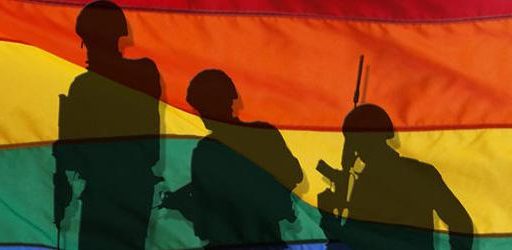
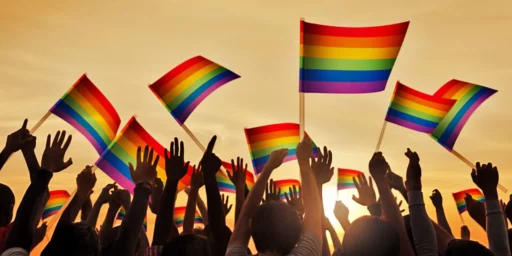
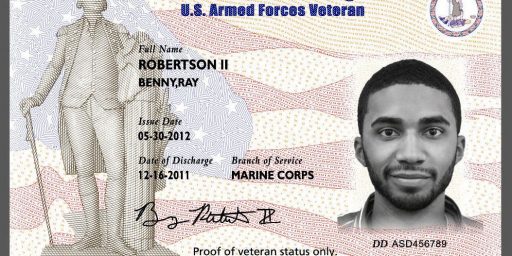
The marijuana thing is interesting. I think it helps to lay it out against some of the laws in the Deep South that prohibited anyone with even a drop of “Negro blood” from holding some position or another.
Off the top of my head, while marijuana is now legal, it was a criminal offense at the time and also criminal to lie about it. No one NEEDS to smoke pot (Snoop and Willy aside) so you chose to commit a crime. But sexual orientation is about who you are. You can’t wake up and say, “being attracted to the same sex is against the law so I’ll not do that then”, just as you have no choice on who your ancestors are.
@MarkedMan: I agree that the two are different in that regard. Still, post-1973, no one has been forced to join the military, either. (But the injustices are different. Military service is deeply tied to citizenship and basic civil rights in a way that getting high isn’t.)
@James Joyner: I think that, particularly as early as 1973, you’ll have any number of LGBTQ folks that don’t even realize (or admit to themselves) that they have that status. So they could join the military without knowing what it would mean to them.
I’m reluctant to in any way tie military discharge to pot use, even as an example of revisiting convictions. To have been dishonorably discharged due to one’s sexual orientation severed people from careers. Using pot, OTOH, is making a behavior choice.
I’m in PR so I see this through a very particular lens, and think it would have made a ton of sense for the military to get out in front of this when DADT was repealed in 2010. They would have had control of the narrative, and it seems to me to be a no-brainer that of course, if being gay is no longer an issue, prior references should be expunged.
I was in the military in the early 70s. We still had some draftees and some people who joined to avoid the draft. I distinctly remember when our base commander undertook an effort to purge gays. I suspect that some of this was aimed at the hospital as we did have a number of gay people working there. They sent out a guide for telltale signs so we could report people we suspected. Among those signs was an overcommitment to work and a willingness to pick up extra shifts on nights and weekends. I couldn’t figure out why we would want to get rid of people like that.
Anyway, I would support this. I suspect there were a few dishonorable discharges where homosexuality was given as the reason for a dishonorable discharge when in reality it was another infraction but whoever was in charge thought it might be more harmful (or less) to give that reason. In which case the discharge was merited, but I think that uncommon enough that we shouldn’t hold it up for everyone else. Kudos to whoever decided to not ask for financial damages. Makes them a lot more credible.
Steve
Not necessarily – gay 18-year-olds (especially back then) don’t necessarily acknowledge even to themselves that they are gay. It’s entirely possible for someone to have enlisted and said truthfully (to the best of their knowledge) that they were not homosexual, only to realize their true feelings later once they were already serving.
Just focusing on the pot side of the equation, here’s some practical considerations: My company does government contracts and as such we are required by law to maintain a drug free workforce including marijuana, despite the fact that recreational use is legal in our state. If someone who was applying for a job here cheated on their pre-hire drug test and continued to use pot to the extent that it came to our attention or, as importantly, the feds attention, it jeopardizes our government contracts. I don’t know if this has ever happened, but if we suspected an employee of drug use and they failed a test or refused one, we would fire them. If, later on, the Federal law changes, would we rehire the person? Probably not. I think I can speak for most of management here when I say the concern was the lying.
On a similar front, unlike many companies we don’t consider a past criminal record to be an automatic disqualification, but we do consider lying about it to be one.
You know, this seems like a reparations issue to me. The government did something we now think is wrong, and the government should try to make up for it. If the request is only to make up for it in documentation, and not monetarily, it’s that much easier. If taking this step might make it possible to sue the government for damages, let’s do that. Let’s put the matter before the courts and see what happens.
My desire toward justice leans strongly in favor of restorative justice rather than punitive justice (that’s not black and white though, punitive justice has a place).
I think recharacterizing the discharges is entirely warranted and appropriate.
However, I don’t see how the Presidential pardon power applies here since the vast majority of gay and lesbian people were not criminally prosecuted but were administratively separated.
I don’t know how much authority the Executive has to change discharges in this way after the fact – it may require legislation from Congress. There is already a record review system in place – it’s possible the President could direct that function to change discharges.
As others have said, I don’t really consider drug use to be comparable. Living in Colorado, and knowing a lot of military folks, I do see some concerns and some potential (and rare) cases of people who claim to have unknowingly ingested drugs that are legal here.
Maybe this is a dumb question, but couldn’t Biden just order the “military” to just do this? Meaning summarily change all these dishonorable discharges to something else and reissue the paperwork?
I’m using the term military in scare quotes to be as broad as possible to include the DoD and various branches cause I am small i ignorant on that point.
I don’t like the idea of papering over past wrongs. In my heart I want to create a new category of discharges, for when the government was the dishonorable party, rather than the service member.
However, I suspect that would break countless computer systems and cause never ending problems for all involved.
So, honorable it is.
Just want to add to @Tony W’s comment.
The closet, and the desire not to be a hated, discriminated against, sinful, etc class of person is amazingly corrosive. Fucks a person up to the point where they can be denying things about themselves that are fundamental, and making all sorts of excuses for why things aren’t gay.
“They didn’t know at 18” doesn’t sound believable. You know who you want to bang, after all.
“So beaten down by society and fear of discrimination and/or sin that they cannot face even the most basic things about themselves” is a lot closer to accurate in too many cases.
It’s something that our hetero friends, like our host James Joyner here, don’t understand* and what causes him to write
To quote George Castanza, “It’s not a lie if you believe it.” And for a lot of queer folks, particularly the kids, believing it was the only way they could function at all.
And then there are the folks for whom the closet is just a formality to make Thanksgiving dinner with Aunt Agatha easier. The closet runs a wide gamut, and this latter group absolutely was knowingly lying if they went into the military.
——
*: They may know it, but it’s so far from their lived experience that they don’t consider it and need to be reminded to account for it. I’m glad it’s so far from their lived experience — no one should have to go through that.
Re-reading above, and recognizing that I went off on the marijuana thing, FTR – of course we should expunge the records of gay soldiers dishonorably discharged solely because they were gay. Our country did these service men and women a great injustice. If they served honorably their records should show that.